Ever feel like there aren’t enough hours in the day?
Attending night classes or going back to school to receive an HVAC certificate might have seemed out of the question in the past. The good news is: now you can study online to get certified. In some cases, you can even take your exams online. We will discuss the ins and outs of getting certified in HVAC from the comfort of your own home.
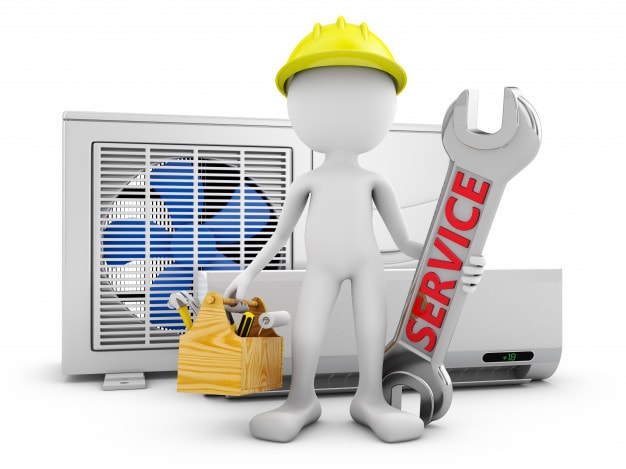
Defining Some Terms
The main focus of this article is “certification” in the sense of getting a certificate upon completing a course. It’s similar to a diploma or a degree. But there are some other uses of the word that can make it confusing.
It is usually not required that technicians attend a trade school to receive a diploma in HVAC. While a local trade school is a strong option for getting your HVAC education there are also online classes and state HVAC certifications you can earn through a combination of hands-on experience and an examination process. At the end of these, you may receive a certificate or a diploma.
The term “certification” is also sometimes used in regard to state requirements. When getting certified through your state you are getting a license to work and perform HVAC installations, maintenance, and repairs in the field.
Getting a diploma from a trade school is different; it signifies that you have a comprehensive understanding of the topics covered in your courses.
There are additional nationally recognized “certifications” such as the NATE and HVAC Excellence Certification and EPA Certification. EPA Certification is required by federal law for anyone who works with refrigerants in the US. NATE and HVAC Excellence are professional certifications that offer proof of a specific knowledge base
Benefits Of Studying Online

The benefits of studying online are numerous. Studying online allows you to tailor your HVAC education to your lifestyle, rather than rework to accommodate a pre-scheduled program. While studying from home might sound isolating, there are tons of online resources and chatrooms you can use for support.
With over 3 million students working online towards a degree, you certainly are not alone. In online classroom settings, you have email and chat access to your instructors if you have any questions.
The cost is usually much lower than studying at a trade school and you will be able to keep your current work schedule intact. That lets you keep earning while you are learning. Studying at home also allows you to be comfortable and flexible as you work at your own pace.
What You Can’t Do Online
There are instances where you might not be able to work towards your license, certification, or degree online. Most states require an apprenticeship program for journeyperson or master level licenses. Hands-on work experience is crucial to really broaden your understanding of certain HVAC concepts.
In states that require licensing, they nearly always require notarized resumes and proof of hours of on the job experience as an apprentice. The examination process is often at a proctored test site for state licensing and not offered online.
Some online programs also offer in-person workshop components to help HVAC students practice key concepts. In most cases, that’s what you want anyone. If you’re studying HVAC, you almost certainly like working with your hands, so time in the shop is important. But the theoretical parts can be done from your home.

What You Can Do Online
Despite these few limitations, there is a lot you can accomplish online when working towards HVAC certifications and degrees. Many online classes are even accredited by the Accrediting Commission of the Distance Education and Training Council (DETC).
When states have a licensing process, they often require a certain number of classroom hours as an apprentice and also after becoming a journeyperson or master. In many cases, these states provide a list of approved online programs, so be sure to carefully investigate whether your course or program will count towards your licensing requirements before enrolling. Nevertheless, other supplementary courses that are not state-approved can still be very valuable to your HVAC education.
HVAC schools will provide you with reference manuals, tutorials, study guides, and other learning aids to help you create a comprehensive knowledge base. You will be able to work through the material at your own speed on a part-time or full-time basis. Find the right combination of online education, hands-on learning, and work experience to fit your HVAC career prospects in one or more of the following areas:

- Refrigeration technology
- Air conditioning technology
- System evacuation
- System charging
- Refrigerants
- Automatic and electronic controls systems
- Programmable controls
- Commercial refrigeration and heating systems
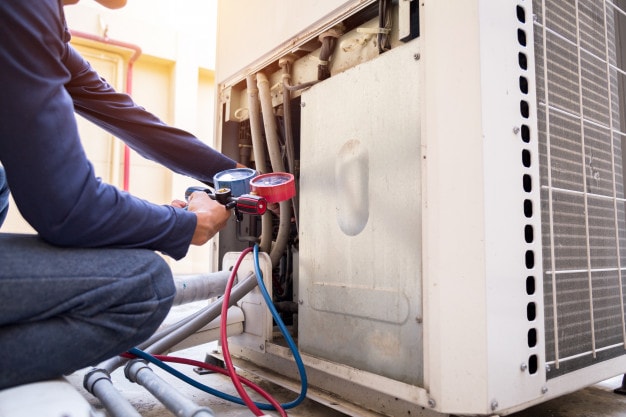
NATE certification can also be done through approved online programs. Read the sections below for more information.
You can also earn your EPA Type I certification online from start to finish. Many online HVAC programs even include the EPA certification as part of the course.
Diplomas, Certificates and Degrees
In a sea of vocational schools, online courses, colleges, and HVAC specific institutes, you’ll need to carefully select an accredited program best suited for your individual career prospects. With any of these, at least part of your program can be done online. Check with various schools in your area and online for specific information.
Here are some different types of programs to choose from:
Nine- To Ten-Month Diploma/Certificate Program
Many trade schools and community colleges offer a 9 to 10 month diploma program in HVAC. This will provide you with the basic theoretical and practical knowledge you need to begin your career. Much of the studying can be done online, but in-shop programs are also part of the program, and sometimes even count toward apprentice hours.

Two-year HVAC Associate’s Degree Program
Completing this degree will get you a diploma and foundational understanding of basic HVAC concepts and it only requires a high school diploma or GED. It can help give you a leg up on the competition against other entry-level techs. There are accredited online programs available for this degree.
Jobs: HVAC mechanic, technician, sales consultant, maintenance, air conditioning tech, refrigeration tech, and more
HVAC Bachelor’s Degree Program
For those looking to dive a little deeper into HVAC, there are HVAC bachelor’s programs that will help you earn a diploma in the applied science. Four-year programs focus on preparing graduates to work as hands-on technicians in addition to filling managerial roles. For those more interested in the communications and project management aspects of HVAC, getting a bachelor’s might be a great route.
Jobs: Project manager, facility manager, HVAC supervisor, technician and more

HVAC Engineer Program
Another advanced area would be to concentrate on engineering. There are no HVAC specific engineering Bachelor’s programs. If you are looking for a four-year program that will qualify you to work in HVAC you should consider pursuing a Mechanical Engineering degree. Programs like this will prepare you to work with thermodynamics, refrigeration systems, and heating technology. It is broad enough to allow you to work outside of HVAC, yet specific enough to prepare you to work with heating, ventilation, and air conditioning systems.
Jobs: mechanical engineer, field service engineer, design engineer, inspector
Remember, it is important that you attend an accredited program evaluated by either HVAC Excellence or a program that is regionally accredited. This assures that your education meets industry standards.
EPA Section 608 Certification
A Type 1 certification test for the EPA Section 608 can be completed online.
Since the test can be done online or in a testing center, it is an open book exam. EPA 608 certification Types 2 & 3 require taking a proctored test.
You can take the EPA Type 1 test online or in person. This will certify you to work with small appliances (5 lbs or less of refrigerant) that use hazardous refrigerants. This is a national certification and is required by federal law. It has no expiration date.
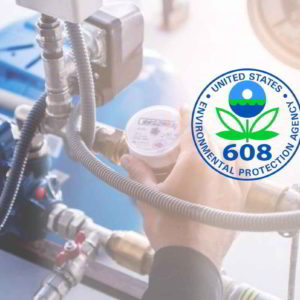
If you take the Type 1 Exam online, you’re required to get a slightly higher grade, but of course it’s an open-book exam. The exam consists of a core section and the specific Type 1 exam. However, if you later decide to take the Type 2 or Type 3 exams, you’ll need to take the core section again.
You can check your readiness for the EPA exams with our free practice tests for each section.
If you’re ready to take the Type 1 exam, you can register and take it at EPATest.com.
The Type 2 and 3 exams cover high- and low-pressure appliances, respectively. For these, you must take the exam in a proctored environment. However Zack Academy has come up with an innovative way to do the proctoring: by webcam. You can find out about their program and sign up on their website.
NATE And HVAC Excellence Certification
HVAC Excellence Certifications are from a nationally recognized organization that has created a program to serve as a benchmark for excellence within the field. Their employment-ready certification is awarded after a series of exams that help techs demonstrate knowledge in their specialty. Tests are administered at the end of course modules.
A NATE (North American Technician Excellence) certification represents a technician’s working knowledge of HVACR systems. There are a wide range of topics related to different HVAC trades. The tests validate a technician’s knowledge and serve as certified proof to prospective employers and consumers.
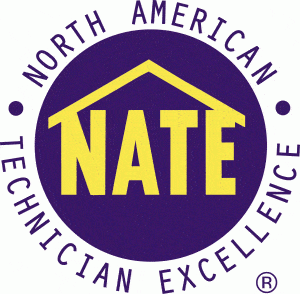
Here are some specialty areas NATE offers:
- Heat pumps
- Gas heating
- Oil heating
- Hydronics gas (service only)
- Hydronics oil (service only)
- Light commercial refrigeration (service only)
- Commercial refrigeration (service only)
- Ground Source Heat Pump Loop Installer
- Senior HVAC Efficiency Analyst
These both are geared to practical knowledge in the HVAC service field. Many people complain that their state exams are too technical. HVAC Excellence and NATE, though, deal with daily situations an HVAC tech faces.
There is a wide variety of online resources to help you prepare for these, in addition to your coursework and field experience.
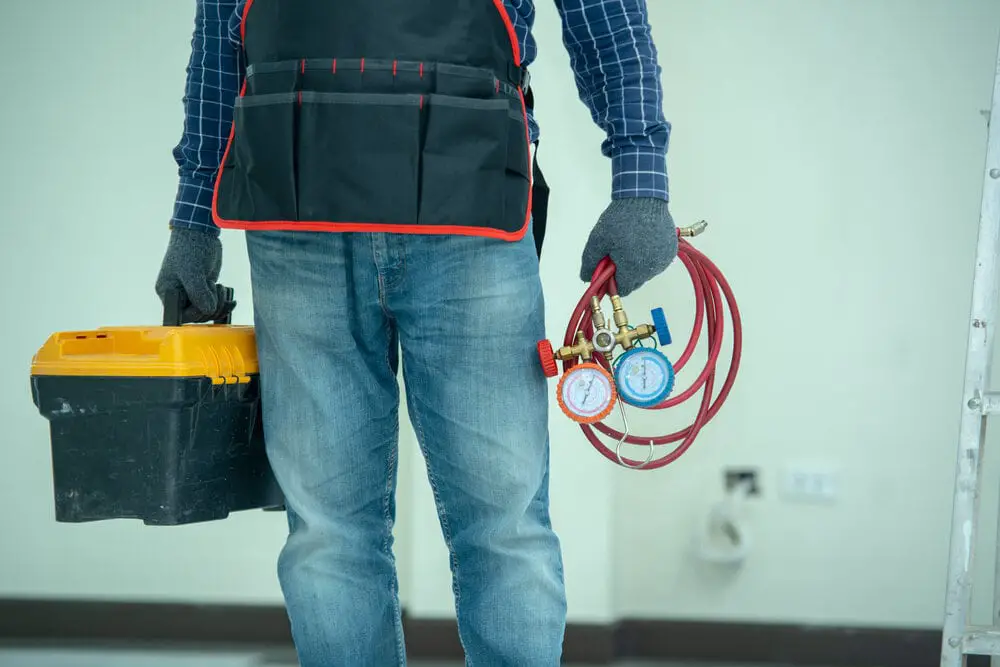
State Licensing
Of course, none of these meets the legal requirements to work in a specific area. Your state and even city or county may have licensing requirements that involve testing. In those cases, fieldwork is required, and sometimes online or classroom studies can offset part of the fieldwork requirement.
Check our guides for each state in the US to find out the requirements in your area. For the most up-to-date information, always consult the appropriate government office.
Conclusion
Pursuing an accredited online education in HVAC can be very rewarding both fiscally and emotionally. It will put you in control of your diploma, certification, or licensing process. You get to choose the hours, classes, and pace to fit your individual lifestyle. If you already have a degree in HVAC, consider enrolling to receive auxiliary certifications like EPA or NATE to continue learning online, expanding your HVAC knowledge AND your HVAC salary.
Frequently Asked Questions
To our knowledge, there are no free opportunities for getting any type of certification in HVAC free online. Most forms of certification or licensing require that the exam be taken in a proctored environment. Other programs that are online do have a cost.

Good day
Thanks for the information . is it possible for me to take the exam and get my certificate?
Hi Sandile,
We are not a testing organization, if that is what you mean. But it depends on what exam and certificate you’re talking about. As the article says, there are many different types of “certificate” and “license”. You might also want to check our article for the state you live in to find out what the requirements for that state are.
I wanna study hvac online how can I do it?
Hi Erisk,
I’m not aware of any program that you can do completely online. Many states required that you attend programs that the state says qualify for getting your license. And most of those programs are either entirely or at least mostly in a classroom.
You can check this article – we mention Ashworth College, which is one among several schools that offer some online classes.
Of course, there are many places you can learn about HVAC online – many YouTube videos and articles on this site and others. But these aren’t “offically” recognized for training requirements if your state insists on attending classes.
Hi Erisk,
I found an online school that offers a free HVAC lesson: https://evoclearning.com/free-hvac-course-online/
It’s just one lesson and not a complete course but if you wanted to enroll in the rest of the course there would be a fee. (But the free part is good!) Penn Foster and Ashworth have online courses too.
Airconacademy (airconacademy.com) has high quality, on line courses for reasonable fees.
I am trying to find a online course for international mechanical codes for connecticut
Hi Ricky,
Personally I’m not sure exactly how the Connecticut setup works. However, you might find the info from PSI Exams here useful. I’ve never used it myself though.
Hello:
I am in the building maintenance engineering field in Texas and would like to expand my horizons. What programs would you recommend for me in the HVAC field? Where can I start and what can I skip. I have a Type 1 and Type 3 EPA certification and have an Associates Degree in Arts. Any info is appreciated
Thank you.
Hi Rolando,
Thanks for reaching out! We actually are just finishing an article on HVAC schools in Texas – I’m in the middle of editing it now, so it should be published in 2-3 days.
I would suggest getting your Type 2 EPA certification (which will actually give you the Universal Certification). That would be a help, for one. There’s a lot of great schools in Texas, although of course it’s such a big state you’ll have to see what’s available in your area. But there are associate’s degree programs as well as certificate programs. The best are obviously going to be ones that focus on what’s required for licensing in Texas, since you’ve already done most of the federal requirements. As far as particulars, it really depends on the type of buildings you expect to work with (apartment houses? factories? office buildings?) and what you’ve done already. But school guidance counselors can also help you cater a program to your needs.
I’m in California and a C-10 Electrical Contractor. The company I worked for did HVAC for about 9 months and in that time I achieved my Universal Technician Certification. Due to my Electrical background I have found HVAC something I’m proficient in. I would like to obtain my C-20 license as well to expand my own endeavors but how can I get it without working for another company to get the required field hours? Is proficiency enough?
Hi Josh,
A lot of that is going to depend on the board. Obviously your background is going to help a ton (some states even require HVAC techs to have a separate electrician’s license if they’re going to do the hookups, at least in commercial work).
It seems that most state boards have a lot of leeway in what they grant as experience. I can’t really speak to how generous they’d be, but maybe they’d be willing to give you at least some credit for related work you’ve already done. Wish I could give a more exact answer, but the state board has to make those determinations individually.